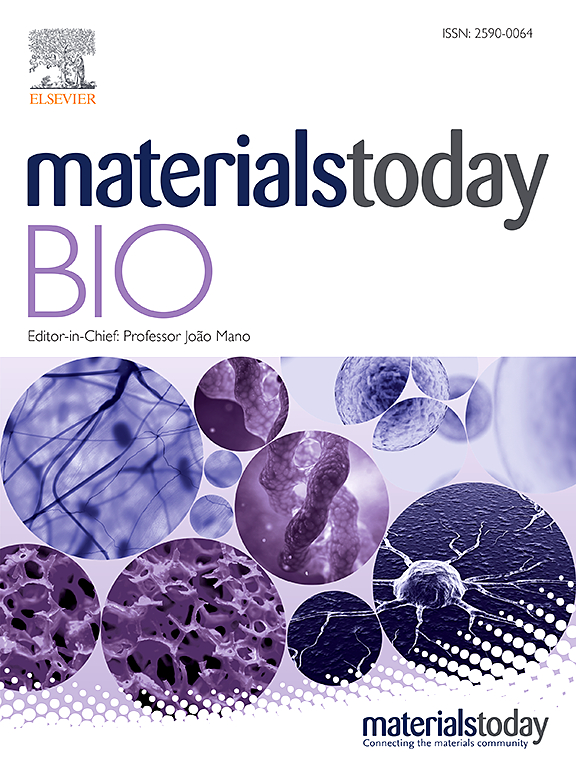Inflammation resolution-based treatment of atherosclerosis using biomimetic nanocarriers loaded with specialized pro-resolving lipid mediators
IF 8.7
1区 医学
Q1 ENGINEERING, BIOMEDICAL
引用次数: 0
Abstract
Recent studies have shown that chronic inflammation in atherosclerotic (ATH) lesions is due to an inability to resolve the inflammatory response. We evaluated the therapeutic potential of specialized pro-resolving mediators (SPMs) incorporated into biomimetic lipid nanoemulsions covered with macrophage membranes (Bio-LN/SPMs) to enhance their stability, targeting, and bioactivity in resolving atherosclerotic plaque inflammation. We utilized both in vitro and in vivo experimental models to test this hypothesis. In vitro, we found that Bio-LN/SPMs significantly reduced the inflammatory markers VCAM-1, MCP-1 in TNF-α-activated endothelial and smooth muscle cells, and iNOS, and NLRP3 in LPS-activated macrophages. In contrast, free SPMs exhibited a more modest effect. In vivo, the i.v. administration of Bio-LN/SPMs in ApoE-deficient mice with progressive atherosclerotic lesions developed after administration for 4 and 8 weeks of a high-fat diet, reduced plasma triglycerides, improved renal function, and decreased plasma proteins associated with complement activation and inflammation (i.e. C4d, C5b-9, IL-6, and MCP-1) to a greater extent than other treatment groups. Bio-LN/SPMs also affected circulated monocyte subpopulations by increasing the percentage of anti-inflammatory Ly6Clow monocytes and reducing that of pro-inflammatory Ly6Chigh monocytes. Additionally, they promoted the transition of macrophages in atherosclerotic plaques to a reparative M2 phenotype. They decreased the production of TNF-α, IL-1β, and IL-6 cytokines, along with lipid deposits in the aorta of ApoE-deficient mice. These findings demonstrate the improved therapeutic efficacy of Bio-LN/SPMs compared to unincorporated SPMs and standard nanoemulsions (LN/SPMs), emphasizing their potential as a novel approach for treating atherosclerosis and other inflammatory diseases.

求助全文
约1分钟内获得全文
求助全文
来源期刊

Materials Today Bio
Multiple-
CiteScore
8.30
自引率
4.90%
发文量
303
审稿时长
30 days
期刊介绍:
Materials Today Bio is a multidisciplinary journal that specializes in the intersection between biology and materials science, chemistry, physics, engineering, and medicine. It covers various aspects such as the design and assembly of new structures, their interaction with biological systems, functionalization, bioimaging, therapies, and diagnostics in healthcare. The journal aims to showcase the most significant advancements and discoveries in this field. As part of the Materials Today family, Materials Today Bio provides rigorous peer review, quick decision-making, and high visibility for authors. It is indexed in Scopus, PubMed Central, Emerging Sources, Citation Index (ESCI), and Directory of Open Access Journals (DOAJ).
 求助内容:
求助内容: 应助结果提醒方式:
应助结果提醒方式:


